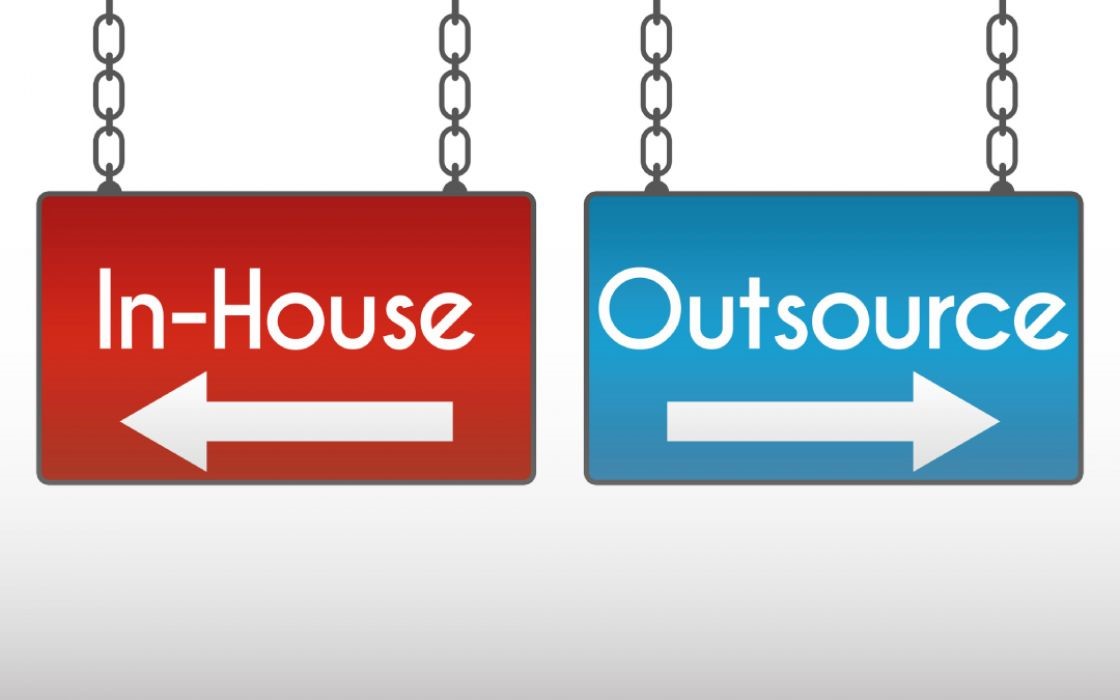In-House vs Outsource:
In the exhilarating world of business growth, scaling your team is a pivotal moment. It signifies progress, potential, and the thrilling ascent towards conquering your niche. But with this exciting challenge comes a critical decision: build your in-house team or strategically outsource specific tasks, including specialized RPO (Recruitment Process Outsourcing)? This blog dives deep into this question, providing you with the data, insights, and strategic considerations to unlock the secret to successful scaling in the staffing industry.
The Relentless Rise of Remote Work: Stats Don’t Lie
The remote work revolution is undeniable. A staggering 87% of global businesses have adopted some form of remote work since the pandemic [Source: Flex Jobs], and this trend shows no signs of slowing. This presents a unique opportunity for staffing agencies – a chance to leverage a global talent pool that transcends geographical boundaries. But how can you best tap into this resource for your recruitment needs? Here’s where the in-house vs. outsource debate, particularly with RPO Recruiting providers, comes into play.
Building Your Internal Dream Team: Cultivating Expertise
There’s an undeniable allure to having a team that bleeds your company colors. In-house hires allow you to meticulously curate a team that aligns perfectly with your company culture and possesses the specific skill sets you require for long-term success. This fosters a sense of camaraderie, knowledge-sharing, and a deep understanding of your unique processes.
Here’s where data shines a light: A study by Gallup revealed that highly engaged teams experience 21% greater profitability [Source: Gallup]. Investing in cultivating a strong internal team, including expert recruiters, can lead to significant returns in the long run.
The Allure of Outsourcing: Cost-Effectiveness and Specialized Skills
However, building an A-team takes time, resources, and a strategic recruitment process. This is where outsourcing emerges as a compelling option. 60% of companies worldwide outsource at least some of their work [Source: Clutch], and for good reason. Outsourcing allows you to:
- Access specialized skills: Need a whiz-kid SEO expert, a data analysis guru, or perhaps a recruiter specializing in a hard-to-fill niche? RPO partners and the global talent pool they access open doors to a wider range of expertise compared to a local recruitment drive.
- Cost-effectiveness: Outsourcing often translates to significant cost savings, especially when dealing with tasks with variable workloads. You eliminate the burden of employee benefits, infrastructure costs, and the overhead associated with maintaining a large in-house recruitment team.
- Scalability: Need extra muscle on a high-volume recruitment project? Outsourcing and RPO partnerships provide the flexibility to scale your team up or down seamlessly based on project requirements.
Unveiling the “When” Behind the “How”: A Strategic Framework
So, when exactly should you consider outsourcing versus building your in-house team? Here’s a framework to guide your decision:
- Core vs. Non-Core Functions: Focus on building an in-house team for activities that define your competitive edge (like client relationships) and require deep understanding of your company culture. Outsource repetitive, non-core tasks like resume pre-screening, social media management, or initial candidate outreach to RPO specialists.
- Project-Based Needs: For temporary projects with specific skill sets, or even seasonal hiring surges, outsourcing to an RPO firm is a strategic move. Building a permanent team for a short-term need is an unnecessary expense.
- Time Constraints: Facing a tight deadline to fill critical roles? Outsourcing to an RPO partner can help bridge the gap and inject the necessary expertise to meet your timeline.
The Art of the Perfect Blend: Leveraging In-house vs Outsource Teams
The reality is, the answer isn’t always black and white. Many businesses achieve optimal scaling by adopting a hybrid approach. This involves building a strong internal core team for strategic functions (including a dedicated in-house recruiter for core roles) while strategically outsourcing specific tasks, projects, or even entire recruitment campaigns to specialized RPO firms.
Building a Winning Partnership: Mastering the Art of Outsourcing
If you decide to use outsourcing or RPO for recruitment, remember, it’s about building a successful partnership. Conduct thorough research, clearly define project requirements, and establish open communication channels. Regularly evaluate your outsourced vendors to ensure alignment with your goals.
The Final Word: Knowledge is Power
By understanding the strengths and limitations of both in-house hiring and outsourcing for your recruitment needs, you can make informed decisions that propel your staffing agency towards sustainable growth. Remember, the “secret” to successful scaling isn’t a one-size-fits-all solution. It’s about strategically leveraging your resources, building strong teams (both internal and external), and cultivating a culture of continuous learning and adaptation.
Conclusion: Scaling is a Dynamic Dance
The decision to outsource or hire in-house isn’t a static choice. It’s a dynamic process that needs to evolve and adapt as your business grows. Regularly reevaluate your current strategy, analyze your resource needs, and be willing to experiment as you scale. The key is to prioritize flexibility while maintaining a clear vision for your business’s long-term goals.
A Word from Pragna Solutions
At Pragna Solutions, we deeply understand the intricacies of scaling within the staffing industry. We’ve walked this path ourselves, experimenting, learning, and building the capabilities to help our staffing partners succeed. Whether your need is finding that perfect in-house candidate with our tailored recruitment services or tapping into our specialized outsourcing solutions to meet project-based needs, including RPO Trends, partnerships, we’re here to collaborate with you in this exciting scaling journey.
For more about Recruitment updates follow our Insights for more info Contact Pragna Solutions for your all RPO Recruiting and Offshore Recruiting Solutions.
